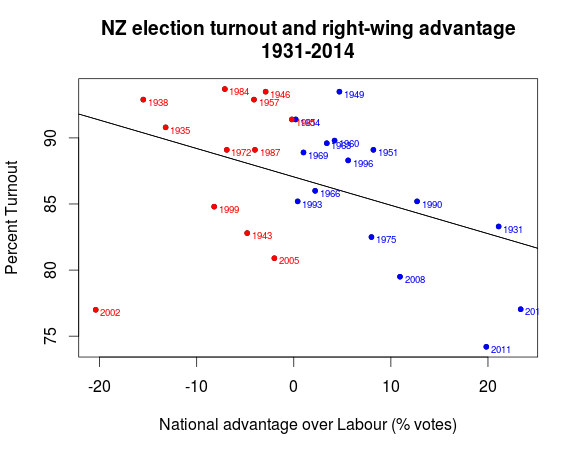Often we vote for people we think look like ourselves or seem like ourselves. When Mitt Romney, a Mormon, ran for president, evangelicals and atheists worried about whether he'd be suitable, while George Bush, an evangelical, drew his support from the evangelical community. Voters prefer an 'everyman' candidate who they can relate to – imagine having a beer with – to a candidate they might concede as more intelligent, but could seem out of touch. All of this might be completely rational – who better to represent your voice than a representative who thinks like you? Black Americans flocked to support President Barack Obama over his opponents – their support was essential, in fact, to getting him and keeping him in the White House. Only 39% of White Americans voted for Obama in 2012, compared to 93% of African Americans.
Berkeley researchers Amy Lerman and Meredith Sadin set out to understand why African Americans in particular have such a strong preference for African American candidates. It has been argued that Black voters prefer to give up being represented by someone who thinks like them in order to get a representative who looks like them. Lerman & Sadin wondered if that was accurate. Black voters considering a Black candidate see an in-group member; White voters, at least racially, see an out-group member. Group identities are important for everyone, and everyone sometimes uses stereotypes to judge others by group membership, in-group or not. This is especially true if we're making an automatic, intuitive decision as in the way many of us make up our minds about voting.
The researchers predicted several findings related to stereotyping Black candidates:
- White voters will stereotype a Black candidate as being more liberal than an identical White candidate, because of racist stereotypes about Black people or simply because they use a statistical probability heuristic.
- Black voters have a stronger racial identity than White voters, both because they are a numerical minority and because they're a particularly oppressed minority – more so than other racial minorities in America. Because of this, they'll project their own beliefs onto candidates more than both Whites and other racial minorities.
- Because statistically, Black candidates tend to be more liberal, Black conservatives will experience greater cognitive dissonance between wanting a candidate who represents their views, and one who looks like them. To cope with that, Black conservatives will use projection more than Black liberals.
- The degree to which a voter projects their views on a candidate predicts their likelihood of voting for that candidate.
In the sample of 3000 people with hypothetical candidates, Black people tended to judge the Black candidate as 'like them' ideologically. Black conservatives thought the Black candidate was more conservative then the White candidate, while Black liberal didn't significantly draw strong conclusions about the candidate from the candidate's race. In a subsequent analysis of the American National Election Survey, White Americans tended to stereotype their Black representatives as much more liberal than White representatives. Black Americans showed similar patterns to the sample of Black participants in the study sample. Going back to the question of what Black voters do when choosing between voting for a candidate who looks like them or a candidate with their political ideology, it seems like Black voters have their cake and eat it too: they tend to assume the candidate who looks like them has their ideology.
While Black voters might not prefer a Black candidate simply because they share skin color, they do perceive Black candidates as more ideologically similar to them and are more likely to vote for the Black candidate compared to a White candidate. This was most true for Black conservatives. If this holds out in the future and in the population at large, it might imply that Black candidates, particularly liberal Black candidates, can take advantage of support from Black voters regardless of whether their ideology matches up with the people they represent.
In follow-up studies, the authors applied their analysis to Latinos – but for whatever reason, the effects they saw in the Black population didn't transfer to the Latino grouping. A lot of Latinos self-identify as White and the grouping may be less cohesive than the Black racial grouping. So whether the results apply to minorities in New Zealand like Maori, Pacific or Asian ethnic groups could be the subject of future research.







